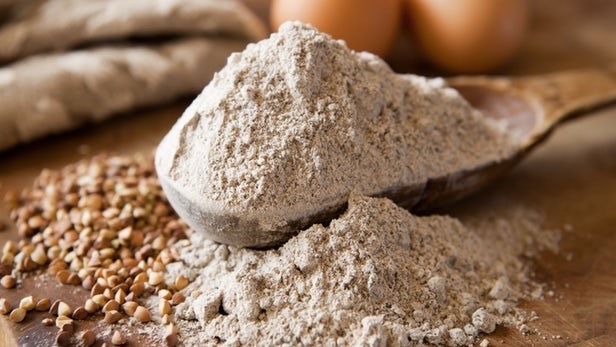
(NaturalNews) It seems that every few years we hear of another diet fad or food fad. In the last few years gluten is getting all of the attention.? How can wheat or other common grains--fixtures of the American diet--be causing such problems?What is gluten? Gluten is the protein found in wheat (including spelt, kamut, triticale , which are varieties of wheat), rye, and barley.
Why has gluten become a problem for so many?
There are several reasons gluten has become a problem for so many Americans.?
First of all, bread or wheat forms the basis of the American diet. Toast for breakfast, sandwiches for lunch, rolls or pasta for dinner--the majority of Americans eat wheat all day, every day.
The wheat we eat barely resembles the wheat our ancestors ate. Although it is not genetically modified (yet), it has been significantly altered by selection, through generations of hybrid alterations to increase yields and make it more disease resistant.
Our ancestors used to sprout grains before using them. We rarely take this step to make grains more digestible.
And last, but certainly not least, Candida overgrowth in the gut is epidemic due to the American diet and use of antibiotics.
What is the link between Candida and gluten intolerance?
Our gut is filled with bacteria. If properly balanced, the beneficial bacteria far exceeds the bad bacteria and yeast. The beneficial bacteria are crucial to our health. They help us digest our food. They create neurotransmitters and vitamins. It is said that 80% of our immune system is in the gut.
When we take antibiotics, we kill off beneficial bacteria along with bad bacteria. When the level of bacteria drops in our gut, Candida, the opportunist, overgrows. When we eat sugar and simple carbs that change into sugar (including alcohol), we feed the Candida its favorite food.
Candida begins as a single cell yeast but soon changes form, becoming a hyphae, stretching out long filaments that bore through tissues in the gut (and throughout all organs of the body). A healthy intestine is lined with cells that form a tightly knit defense to keep its contents contained. Nutrients are pulled from the food we eat through tiny vessels from the circulatory system and lymphatic system within the villi, little hair like projections. When Candida erodes the lining of the gut, undigested food particles and large proteins, like gluten, are leaked into the bloodstream and the lymphatic fluid. The immune system attacks these particles, perceiving them as foreign invaders. This is the root cause of many auto-immune diseases and allergies.
What are the symptoms of gluten intolerance?
Digestive disturbances such as gas, bloating, and diarrhea are the most basic symptoms of gluten intolerance experienced when gluten is consumed. Those with a severe sensitivity also experience rashes (which can be severe, itchy, weeping sores) along with mild to severe muscle and joint pain.
Gluten sensitivity includes a reaction to foods with minute amounts of gluten including foods processed in a shared facility. In other words, wheat , rye, or barley may not be an included ingredient, but if the equipment used to process a particular sauce or packaged food was used to process food with wheat, it can be contaminated and produce symptoms.
What is Celiac Disease?
Celiac disease is an autoimmune disease with a genetic predisposition.? There are up to 300 symptoms of this disease, but there are also individuals who are asymptomatic.? The one thing they all have in common is the result of eating gluten--it attacks and destroys the villi in the intestine. When villi is destroyed, our capacity for absorbing nutrients from our food is diminished. Each time gluten is eaten even in small amounts, more damage ensues.
Can gluten intolerance be reversed??
If Candida is eradicated, if the gut is completely healed and is no longer permeable, and the immune system has healed, it is possible that many will again tolerate gluten. It is advisable, however, to get tested to be sure Celiac disease is not silently damaging the intestine.
In conclusion
Gluten intolerance is not a fad. It is a fact--an every growing reality caused by the American diet and lifestyle. If you have been diagnosed with any autoimmune disease or with gluten intolerance, leaky gut caused by Candida may well be the root cause.